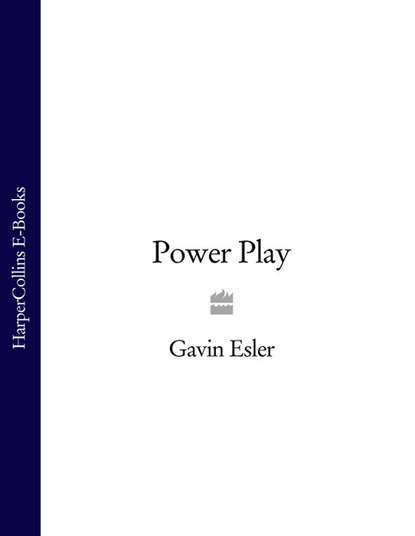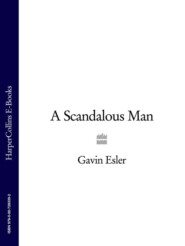По всем вопросам обращайтесь на: info@litportal.ru
(©) 2003-2024.
✖
Power Play
Автор
Год написания книги
2018
Настройки чтения
Размер шрифта
Высота строк
Поля
‘So?’
‘So, what good did it do us? At great cost to ourselves in American lives, we took out Iran’s two most dangerous enemies, and the Iranians still hate us. Fact: Under Bill Clinton in Nineteen Ninety-eight we saved the Muslim people of Kosovo from slaughter and get no credit from Muslims anywhere. So how dumb are we? We think tactics and ignore strategy; we screw up because we don’t think through what the objective really is. No More Manilas means no more being dinosaurs.’
‘The objective …’ Bobby Black started to say something but Theo Carr waved him to be silent.
‘How do we do better, Dr Taft?’ Carr asked.
‘By thinking like the people of the region, sir. By remembering the old Arab cliché, that My Enemy’s Enemy is My Friend. By getting smart. By getting others to do the dirty work for us.’
‘But how?’ Carr insisted.
That’s when the White House reading list was born, despite Bobby Black’s protests.
‘Here’s a start. Arabs and Persians watch our TV, our movies, read our books, listen to our rock music. We should do the same with their literature. They understand us and we do not understand them.’
‘Through storybooks?’ Bobby Black scoffed.
‘One good novel revealing how ordinary Muslim people think,’ Kristina responded, ‘is worth a dozen CIA estimates about the opium crop in Afghanistan or political gossip on instability in Iraq or Pakistan or wherever.’
‘She speaks Arabic, that’s why she thinks this way,’ Bobby Black responded. ‘I speak American and, in plain American, we need to understand these people a whole lot less, and condemn a whole lot more.’
‘I speak Human,’ Kristina contradicted Bobby Black a second time, which is maybe where all the trouble between them started. ‘And it’s the human battle we need to win.’
The President looked at Kristina, then at his Vice-President, and decided the novels should stay on the White House reading list. As Kristina told me the gist of the story that day waiting for Bobby Black, she suggested some bookstore titles for me, beginning with an Egyptian novel called The Yacoubian Building.
‘A young man from a poor background wants to become a police officer,’ she told me, ‘but he’s from the wrong class and can’t afford the bribes. So this decent young guy becomes a terrorist instead. The author says the real disease in the Muslim world is despotism. Terrorism is just one of the symptoms. He’s right.’
I tried to digest this thought.
‘So, has the Vice-President read this insightful book?’ I asked mischievously. Kristina Taft laughed again. I had broken through. I could see her visibly relax in my company, and I sensed an opportunity. Bobby Black was shaping up to be the most powerful Vice-President in US history, even more powerful than Dick Cheney. After Manila, Theo Carr announced that Black would be in charge of anti-terrorism policy. It was difficult for me to see how his approach and Kristina’s ideas could ever work together in the same administration. She would need allies. So would I.
‘More than two hundred American dead,’ Bobby Black had said in speeches in the dying days of the campaign. ‘Two hundred and forty seven of our people; thirty-nine of other nationalities. Two hundred and forty seven of Us. Every American will be avenged. You have my word. No–More–Manilas.’
All through the transition, London had badgered me to find out what this sabre-rattling talk actually meant. The most important question for any British government is always to figure out what the Americans are up to, and I am the person who is supposed to know.
‘The Spartacus Solution,’ I told Andy Carnwath when he contacted me at Fraser Davis’s insistence.
‘What the fuck is that?’ he said. Phone conversations with Andy Carnwath are typically littered with so many expletives that within the Civil Service they are known as ‘The Vagina Monologues’. I explained that the British military attaché had heard whispers in the Pentagon that Bobby Black had been very impressed by a discussion paper written by an obscure US Army General, Conrad Shultz. General Shultz–according to the DoD, the Department of Defence buzz–had written a paper during a year’s sabbatical at West Point calling for ‘The Spartacus Solution’ to terrorism.
I had no idea what the paper was about but I reminded Carnwath that Spartacus led the slave rebellion against the Romans. He and his fellow rebels were crucified on the roads into Rome.
‘Jesus fucking Christ,’ Carnwath said. ‘Slaves? Crucified? You’d better get a copy of this fucking fairytale, Alex. Top priority.’
The urgency of getting a copy of ‘The Spartacus Solution’ became even more obvious when Theo Carr announced that General Shultz was to become the new Director of Central Intelligence.
‘So, come on, has the Vice-President been reading anything on your booklist, Dr Taft?’ I teased. ‘I mean, anything at all?’
‘Vice?’ Kristina replied mischievously, sipping her black coffee and using a nickname for the Vice-President that was already current in Washington, even though he had been in the White House for such a short time. ‘Vice boasted to me that he hasn’t read a storybook in thirty years and did not need fiction to tell him that, once you’ve got people by the balls, their hearts and minds will follow. So I guess I have some work to do.’
She watched for my reaction. I nodded, sympathetically. Diplomatic Warning Bell Number Two went off in my head. Dr Kristina Taft had now clearly signalled to me that there was serious tension in the White House, and the Carr administration was less than ten days old. Perhaps she was also signalling that she herself was out of her depth, but I was less sure of that. It would take me a long time to find out what her depth might be.
We were interrupted by an aide who came through to say that Bobby Black had finished his meeting with President Carr and was now ready to see us. We walked down the corridor. The Vice-President was behind his desk. He did not get up. He did not apologize for keeping me waiting.
‘Ambassador Price.’ We shook hands. His fist was cold and moist, like wet dough. The air smelled strongly of lily pollen.
‘Mr Vice-President.’
‘You know Johnny Lee.’ Johnny Lee Ironside nodded. I was glad to see him. He was to become a guide into the Heart of Darkness that is the OVP, the Office of the Vice-President. I congratulated Bobby Black on the election.
‘I’m very pleased to see you here in the White House, Mr Vice-President,’ I said. ‘The Prime Minister has instructed me to pass on his personal congratulations and his sense of awe’, I continued, ‘at your ability to confound conventional wisdom. Prime Minister Davis would like to learn your election-winning secret.’
Bobby Black smiled the way a car salesman does with an irritating customer.
‘Our secret is that winning the War on Terror isn’t the most important thing,’ he said. ‘It’s the only thing. The voters of this country understand that. I’m hoping to get your Prime Minister to understand that too. It’s kind of like missionary activity on our part you might say. Spreading the word.’
The November election had been a split decision. Carr and Black had won the White House but the Democrats scraped through to keep control, narrowly, of Congress. That was one of the reasons I was so keen to meet the new House Speaker, Betty Furedi, later that day, to try to gauge how much she would cooperate with Carr, and how much she might get in the way. Vice-President Black looked across the desk at me and blinked. A slack, lopsided grin appeared across his face.
‘Fear’, he said, by way of further explanation of the election victory, ‘works.’
I took a breath. If Bobby Black thought fear was a useful weapon to use upon the American electorate, then perhaps our discussions about the treatment of British terrorist suspects like Muhammad Asif Khan might not be about to go so well. I looked at Kristina Taft. She pulled out a Montblanc pen and gazed at the yellow legal pad in front of her. She did not catch my eye. The Vice-President launched into a short speech.
‘Newspaper stories in your country about torture’, he began softly, ‘are not helpful: not helpful to President Carr and this administration, not helpful to my people, not helpful to the fight against terror, and not helpful to the close cooperation between our two countries.’ Bobby Black went on to explain that in what he called ‘exceptional circumstances and exceptional times’ the ‘exceptional’ use of torture was justified. ‘You do not need me to remind you that, since Manila, these are exceptional circumstances,’ he emphasized, ‘which is why the President as Commander-in-Chief has authorized enhanced interrogation techniques. Some people choose to equate these with torture. I don’t care what word you use. I care that we get the job done.’
He hit a doughy hand on the table in front of him for emphasis. The Vice-President did not equivocate. Nor did he talk about ‘robust treatment of detainees’, which is the phrase that a beleaguered Prime Minister Davis had used in the Commons. And he did not try to pretend all this was simply some rough stuff that had got out of hand. Bobby Black confirmed to me that one of the first acts of the Carr Administration had been to sign what was known as National Security Directive 1402227. He clasped his hands together in an attitude of prayer and calmly explained that this directive specifically authorized the use of ‘highly coercive methods of interrogation by the United States’, which might be considered to fall within the United Nations definition of torture. This time he did not say ‘fuck the United Nations’, though I suspected he was thinking it.
‘The presidential authorization’, Black said, ‘comes with safeguards.’
‘Safeguards?’ I repeated. ‘What safeguards can you have on highly coercive interrogation, Mr Vice-President?’ He tapped his fingers together. His ruthlessness had an honest face. He never pretended otherwise.
‘All highly coercive procedures must be carried out under the supervision of a designated senior CIA officer. Only the Central Intelligence Agency–not the US military–only the CIA is authorized to carry out these enhanced interrogation procedures.’
I gulped. So, those were the safeguards? In their entirety? There was a pause while I was allowed to digest these statements.
‘Well, in the Khan case—’ I began, but Bobby Black cut me off. He said it was ‘just one of those things’ that the story had got into the British press, and that he did not bear grudges about that.
‘In fact, I’m mighty grateful the British media are reporting we are playing hardball with al Qaeda and their British supporters like Mr Khan,’ he said. ‘Because we are. We are serious. Committed. Determined. We do not do this lightly. It shows the nature of the exceptional threat we face.’
He had the franchise on the word ‘exceptional’.
‘Legally Mr Khan is not—’
‘Legally we have a Golden Shield, Ambassador Price. A Get-Out-Of-Jail-Free card. The President, under the Constitution of the United States, has absolute authority to manage a military campaign as he sees fit, including whichever enhanced interrogation techniques he chooses to authorize, notwithstanding any definitions of torture used by foreign powers or multinational organizations.’
‘But the United Nations’ definition …’
He grinned. ‘You know what I think of the United Nations.’
I tried to change the subject. ‘Specifically, when it comes to British citizens like Muhammad Asif Khan—’






